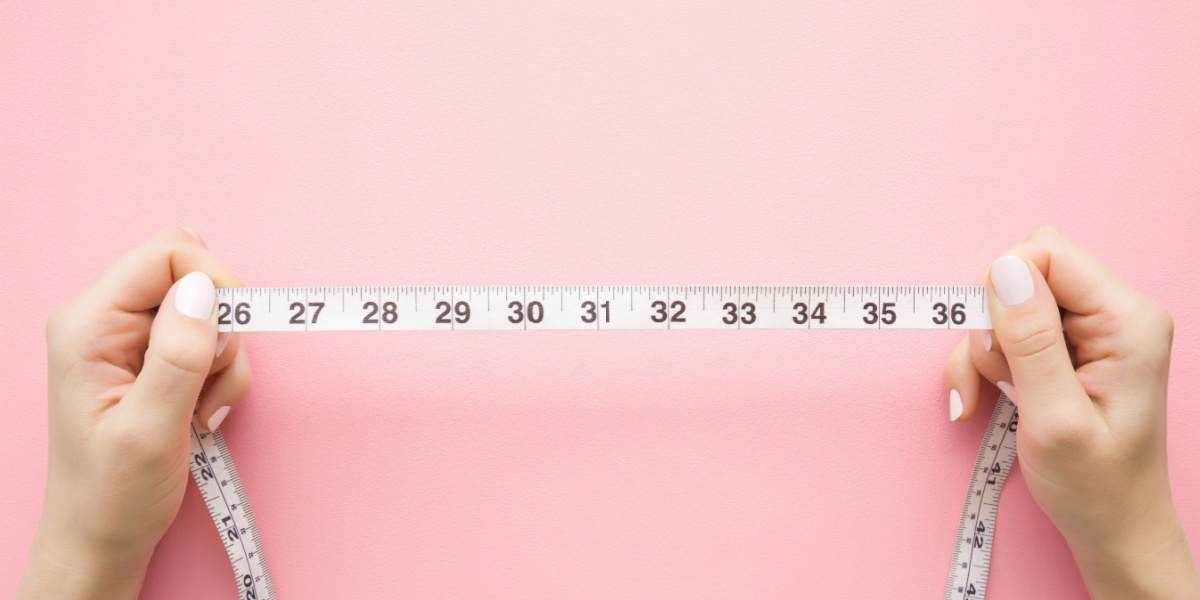Around one in ten people who take Lyrica (pregabalin) for medical reasons experience minimal to moderate weight gain. Weight gain may be higher in those taking the medication for diabetic peripheral neuropathy, taking higher doses, and using other medication at the same time.
- About 10% of people taking Lyrica reported minimal to moderate weight gain.
- Out of patients who experience weight gain with Lyrica, 99.7% continue to use the drug to treat nerve pain and symptoms related to diabetes, fibromyalgia, epilepsy, and other nerve issues.
- It might be best to seek medical advice if the following situations are experienced while taking Lyrica: moving up in BMI weight categories, taking multiple medications with compounding weight gain effects, or under Lyrica treatment for diabetes while already overweight.

Lyrica (pregabalin) and weight gain
Weight gain is one of the possible side effects of taking pregabalin (Lyrica) as prescribed.[1] However, the majority of patients prescribed Lyrica won’t gain weight or will gain only a small amount. The reported incidence of weight gain from Lyrica ranges from 2% to 14.8% of patients.
The following factors may be associated with a higher gained weight while taking Lyrica.
- Higher dose and longer duration of use. Weight gain may be correlated with the dose and the duration of taking it.[2] One study included patients taking pregabalin for neuropathic pain and found an average weight gain of 3.6 lbs during the 12- to 18-month follow-up. Those who were taking a higher dose gained more weight: an average of 6.5 lbs.[2]
- Use of other medication. In one study of patients taking pregabalin for epilepsy, the mean amount of weight gained was 4 kg (9 lbs) over a six-month follow-up. However, these patients were also taking other anticonvulsants, and weight gain was correlated with high total medication use.[3]
- Drug or alcohol misuse. Abusing substances such as alcohol or narcotics can affect the body's metabolism, often leading to a person losing or gaining weight. There is also the possibility of adverse drug interactions between Lyrica and controlled substances or alcohol, which may lead to fluid retention or additional weight gain.
Why does Lyrica cause weight gain?
It’s unknown why pregabalin causes weight gain. It may increase users’ appetite or make them sleepy and therefore reduce their activity. Pregabalin has also been associated with fluid retention, especially in the limbs, which can increase weight. In studies, 6% of patients treated with pregabalin experienced this peripheral edema, compared to 2% of patients in the control group.[4]
Weight gain as a result of abuse of Lyrica hasn’t been studied. However, people who abuse the medication often take much higher doses than people who are taking it for clinical reasons: usually three to 20 times the therapeutic dose.[5] This could theoretically lead to a higher risk of weight gain, depending on how frequently they are taking pregabalin recreationally and what other drugs they are using.
Health implications: Should you be worried about weight gain from Lyrica?
For most people, the weight gain associated with Lyrica is minor and not enough to substantially increase their body mass index and risk for these adverse health outcomes. For example, the weight gain caused by Lyrica doesn’t cause clinically significant changes in blood pressure.
However, excess weight is associated with a range of health complications, including type 2 diabetes, heart disease, strokes, and cancer so it's best to monitor if weight gain is significant, especially if you have a healthy diet. The long-term effects of Lyrica-induced weight gain on the cardiovascular system haven’t been studied.[4]
When to get advice from your doctor
For most patients, Lyrica’s effectiveness in treating pain and symptoms associated with conditions such as diabetes, fibromyalgia, nerve pain, and epilepsy usually outweigh common side effects. Very few people (around 0.3%) stop taking Lyrica due to weight gain. But it might be best to get advice from your doctor for the following situations:
- Substantial weight gain. Lyrica-associated weight gain can also be risky if it’s substantial. For instance, in patients with epilepsy taking pregabalin, 41% gained more than 5 kg (11 lbs) over six months and one in five moved up to a higher weight class, for example from a regular BMI to an overweight BMI or from overweight to obese.[3]
- Multiple medications and compounding effects. Concern is raised when patients are taking multiple drugs which may cause weight gain, as the effects can compound. For instance, the patients with epilepsy who gained the most weight were taking the highest total load of anticonvulsants, and the patients with neuropathy gained the most weight (average of 8.5 lbs) when pregabalin was combined with the antidepressant/nerve pain medication duloxetine.[2][3]
- Diabetic patients with overweight BMI. Lyrica is also commonly prescribed for diabetic neuropathy and to patients with type 2 diabetes who are already overweight and for whom additional weight gain can worsen the progression of the disease. In a controlled study, patients with diabetes treated with Lyrica gained an average of 1.6 kg (3.5 lbs), compared to 0.3 kg (0.66 lbs) in patients treated with a placebo. Another study of diabetic patients who took Lyrica for at least two years found an average weight gain of 5.2 kg (11.4 lbs).[4] Therefore in patients with diabetes whose weight is a concern, another nerve pain medication may be used rather than pregabalin. For instance, the related medication gabapentin is associated with less weight gain.[6]
Related article: Experts Discuss: Do Weight Loss Drugs Like Ozempic Hold The Answer to Long-Term Weight Management?
Other side effects of Lyrica
Other common side effects of Lyrica include:[1]
- Fatigue
- Sleepiness
- Elevated mood
- Headache
- Nausea
- Vomiting
- Constipation
- Gas and bloating
- Decreased libido
- Dry mouth
- Difficulty concentrating
- Lack of coordination
- Loss of balance
- Slurred speech
- Increased appetite
Avoiding health risks with Lyrica
To minimize side effects with Lyrica, patients are usually started on a low dose and then titrated up as their tolerance increases. As side effects, including weight gain, are correlated with dosage, patients are prescribed the lowest dose possible for symptom relief.
You can also avoid or minimize weight gain with Lyrica (or any other medication) by taking the following steps:
- Eat a balanced, healthy diet with portion control. If pregabalin increases your appetite, add lean protein (for example, fish, skinless poultry, soy, and dried beans) and small amounts of healthy fats, such as nuts, to your diet. These foods take longer to digest than simple carbohydrates and can make you stay fuller for longer. If you’re still hungry between meals, use a hot beverage, such as tea or vegetable or bone broth to fill yourself up.[7]
- Be mindful of your hunger signals. Waiting 15 to 20 minutes after you first feel hungry, and distracting yourself in the interval, can help you determine if you’re really hungry or simply bored or stressed.
- Speak to a dietician, who can help you devise a healthy meal plan to satiate your hunger and control your weight.
- Stay active, trying to get at least 30 minutes of exercise a day. If Lyrica reduces your neuropathy, you may find exercise gets easier. Physical activity can also minimize the sleepiness pregabalin can cause.


-tablets-(1)-guide-detail.jpg?v=1722503547)